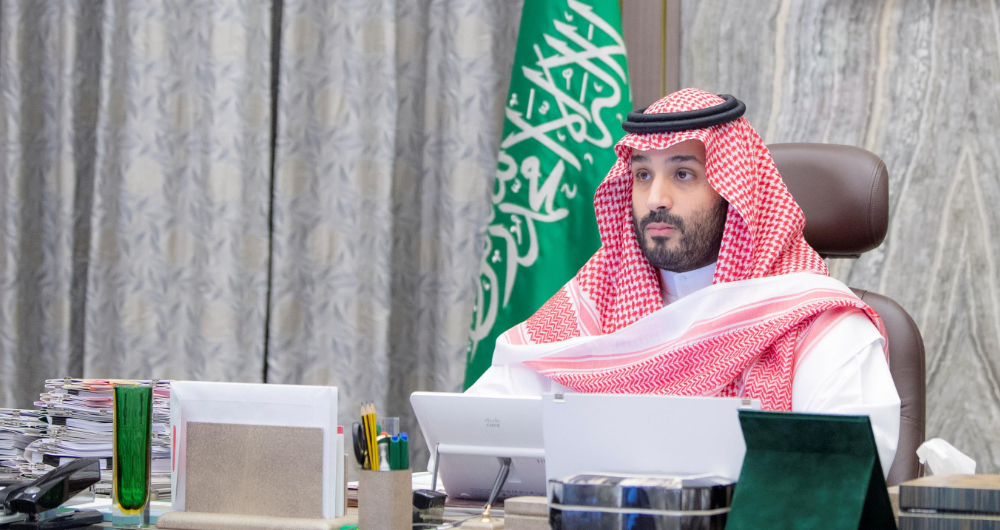AL-MUKALLA: The $422 million Saudi fuel donation for power stations in Yemen would save millions of dollars and help reduce long power cuts that have been blamed for fueling unrest in hot and humid Yemeni cities, officials and analysts said on Wednesday.
Anwar Mohammed Kalshat, Yemen’s minister of electricity, told Arab News that the Saudi donation came just in time as the Yemeni government was frantically searching for funds to buy fuel to keep power stations functioning.
“This is a big boost to the power sector and would significantly stabilize electricity services. It would alleviate the suffering of the people during these days and in summer,” the minister said, thanking the Saudi leadership for standing by Yemenis during the current “difficult times.”
“We would like to thank our brothers in Saudi Arabia for this support and donation,” Kalshat said.
Shortly after Saudi Crown Prince Mohammed bin Salman announced the grant, the Yemeni riyal began rebounding against the dollar and other hard currencies.
Mainly due to a chronic shortage of fuel, power cuts in some Yemeni cities, including the port city of Aden, currently reach 18 hours a day.
The Yemeni government has long complained that fuel bills for power stations consume the nation’s meager revenues and the country is unable to fund vital projects in other important sectors such as health and education.
In September last year, Aden Gov. Ahmed Hamid Lamlis said that local authorities in Aden spent more than $1 million a day on buying fuel for power stations. The Saudi fuel donation will also stabilize fuel supplies to oil stations across the country and end long queues outside oil stations, Yemeni officials said.
Khaled Salman Al-Akbari, director of the Yemeni Oil Company in Hadramout, a government body responsible for importing fuel for power grids and the local market, told Arab News that supplying local power stations with the Saudi-funded fuel would alleviate pressure on the Yemeni company and help divert fuel to the local market.
The shortage of oil has led to unrest and long queues outside oil stations in Yemen.

Shortly after Saudi crown prince announced the grant, the Yemeni riyal began rebounding against the dollar. (SPA)
“This is a big relief to the Yemeni people in all provinces and to the Yemeni company that has been placed under huge pressure to supply power stations and the local market with fuel,” Al-Akbari said, noting that the funds saved from fuel bills would be allocated to vital projects.
Long power cuts in the Yemeni cities, mainly in extremely hot and humid cities such as Aden and Al-Mukalla, have triggered unrest and large demonstrations over the past several years.
On Tuesday, a protester was killed when security forces in Hadramout’s Mayfa used force to disperse crowds of angry people who blocked a road to demand electricity.
The killing of the protester sparked outrage in the province, prompting the governor of Hadramout to ban large gatherings to contain the unrest.
In Aden, the interim capital of Yemen, hundreds of people have taken to the streets to demand that the government import services, including electricity.
Yemen political analysts believe that the stabilization of the electricity service will ease growing anger against the government due to crumbling basic services.
Saleh Al-Baydani, a Yemeni political analyst, advised the government to “rationally” benefit from the Saudi donation and to find sustainable solutions to long power cuts and other problems in its territories.
“These demonstrations and tension in the streets would naturally diminish if citizens saw a tangible improvement in the (electricity) service,” Al-Baydani said.
Following the Saudi grant, the Yemeni riyal began to rebound against the dollar and other hard currencies.
The Yemeni riyal, which had dropped greatly over the past couple of months, recovered against the dollar, reaching 850 on Wednesday compared to 880 on Tuesday.
Yemeni economists said that the Saudi grant would curb the growing demand for the dollar by fuel and goods traders, the main reason behind the fall of the riyal.
Mustafa Nasr, director of the Economic Media Center, told Arab News that demand for the dollar would temporarily decrease during the distribution of the Saudi grant as the country would not import much fuel.
“One of the reasons for the fall of the riyal is buying hard currencies from the market for importing fuel. The injection of almost half a billion dollars from the Saudi grant would ease the demand for hard currency,” Nasr said.
“But this is a temporary solution to the problem. The government should look for sustainable solutions to the devaluation of the currency such as resuming exports,” he said.













